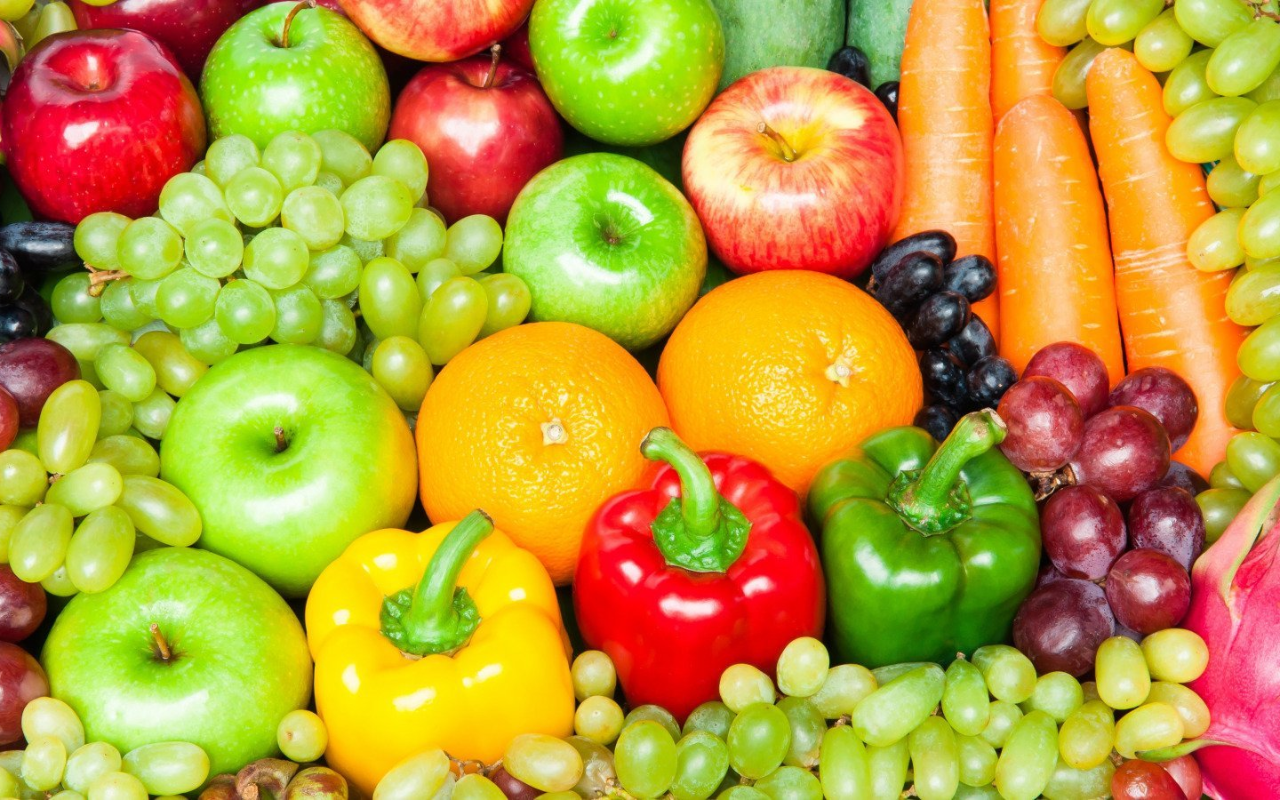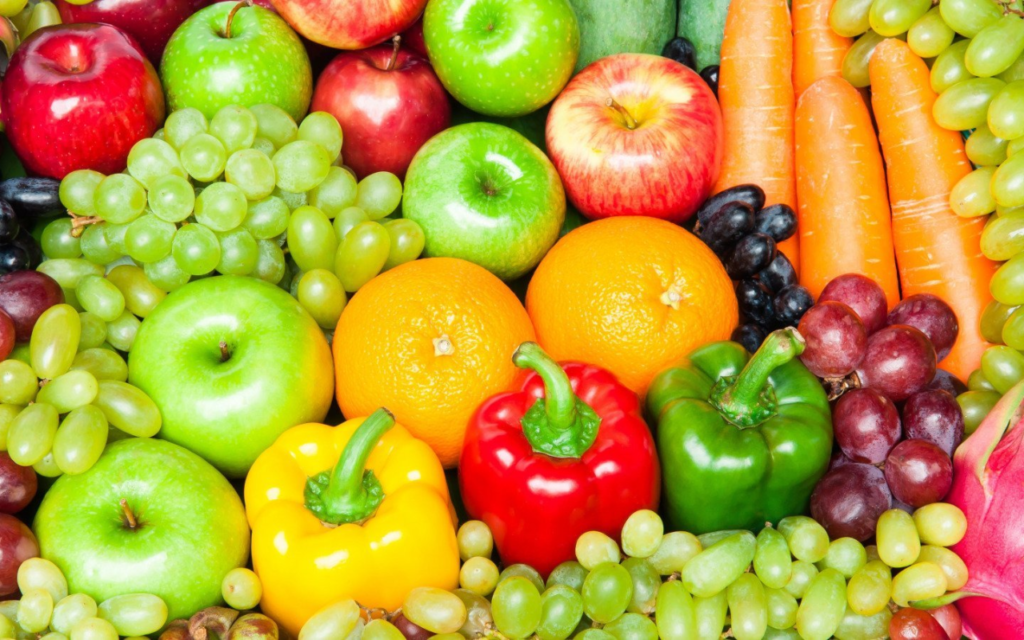Fresh fruit and vegetables play a crucial role in maintaining a healthy lifestyle. They are nature’s powerhouse, packed with essential vitamins, minerals, and fibers that contribute to overall well-being. The vibrant colors and diverse flavors they offer are just bonuses. Their benefits extend far beyond simple nourishment, impacting physical health, mental well-being, and even the prevention of chronic diseases.
Nutrient-Dense Powerhouses
Packed with an array of essential nutrients, fresh fruit and vegetables are unmatched in their ability to support bodily functions. They provide vital vitamins such as A, C, and E, as well as minerals like potassium, magnesium, and calcium. These nutrients are crucial for everything from immune support and bone health to maintaining optimal vision and reducing inflammation.
Fruits such as oranges and strawberries are rich in Vitamin C, which helps strengthen the immune system and aids in the absorption of iron. Vegetables like spinach and kale are loaded with iron and folate, essential for blood health and cellular function. A diet rich in these natural sources of nutrients can help bridge the nutritional gap often left by processed foods and supplements.
Supporting Digestive Health
Dietary fiber is a vital component of fresh fruits and vegetables that promotes digestive health. Fiber adds bulk to the stool, making it easier to pass and thus preventing constipation. It also helps regulate blood sugar levels and can lower cholesterol. Fruits like apples, pears, and bananas, and vegetables such as broccoli and carrots, are excellent sources of both soluble and insoluble fiber.
Consuming a variety of these foods can aid in maintaining a healthy gut microbiome, which is essential for overall digestion and nutrient absorption. A healthy digestive system can also enhance mood and energy levels, showcasing the profound impact of fruits and vegetables on more than just physical health.
Weight Management and Satiety
Fresh fruit and vegetables are low in calories but high in volume and nutrients, making them ideal for weight management. They provide a feeling of fullness, which can help control hunger and reduce the temptation to overeat. Foods like cucumbers, leafy greens, and berries are perfect examples of low-calorie options that can be enjoyed in larger quantities without the worry of excess calorie intake.
Replacing high-calorie snacks with fresh fruits or a salad not only reduces calorie intake but also increases nutrient density. This approach supports a balanced diet that provides energy and nutrients without the added burden of extra calories.
Disease Prevention
A diet rich in fresh fruits and vegetables has been linked to a reduced risk of several chronic diseases, including heart disease, stroke, and certain cancers. The antioxidants found in these foods help neutralize harmful free radicals in the body, reducing oxidative stress and inflammation.
For instance, tomatoes are high in lycopene, a powerful antioxidant associated with reduced risks of heart disease and prostate cancer. Cruciferous vegetables like broccoli and Brussels sprouts contain compounds that may help protect against certain types of cancer.
Regular consumption of these foods can significantly contribute to long-term health and disease prevention, showcasing their role as a natural defense mechanism for the body.
Boosting Mental Health and Cognitive Function
The benefits of fresh fruits and vegetables are not confined to physical health alone. They also play a significant role in supporting mental health and cognitive function. Studies suggest that a diet rich in these foods can lower the risk of depression, anxiety, and cognitive decline.
Leafy greens, rich in folate, are linked to reduced symptoms of depression. Berries, high in flavonoids, are associated with improved memory and cognitive performance. Including a variety of these foods in your diet can provide the brain with the nutrients it needs to function optimally and maintain mental clarity.
Enhancing Skin Health
Healthy skin often reflects a healthy diet. Fresh fruits and vegetables, rich in vitamins and antioxidants, can promote glowing skin and reduce signs of aging. Vitamin C, abundant in citrus fruits, supports collagen production, which is essential for skin elasticity and wound healing.
Beta-carotene, found in carrots and sweet potatoes, helps protect the skin from sun damage and can give it a natural glow. Hydrating fruits like watermelon and cucumbers also contribute to skin health by maintaining hydration levels. Regular consumption of these foods can lead to a clearer, more radiant complexion.
Incorporating Fresh Fruit and Vegetables into Daily Meals
Including more fresh fruits and vegetables in daily meals doesn’t have to be difficult. Start with simple swaps, like adding berries to your breakfast cereal or opting for a side salad with your lunch. Snack on sliced fruits or vegetable sticks with hummus instead of processed snacks.
Planning meals around seasonal produce can also make this habit more enjoyable and cost-effective. Each season offers a variety of fruits and vegetables at their peak freshness and flavor. Exploring local farmers’ markets can introduce you to new produce and inspire creative, nutritious meal ideas.
Overcoming Common Barriers to Consumption
Despite their numerous benefits, some people struggle to include enough fruits and vegetables in their diet. Common barriers include lack of time, limited access, and cost concerns. However, with a bit of planning and creativity, these challenges can be overcome.
Pre-cut vegetables and fruits, frozen options, and pre-packaged salads are convenient alternatives for those with limited time. For those worried about cost, choosing seasonal or locally sourced produce can be more affordable. Cooking in bulk and storing leftovers can also help ensure you always have a healthy option on hand.
Fresh Fruit and Vegetables: A Pillar of a Healthy Diet
Fresh fruits and vegetables form the cornerstone of a balanced diet. They provide essential nutrients, support digestive and mental health, and contribute to disease prevention and overall well-being. Their versatility makes them easy to include in a variety of meals, whether raw, cooked, or blended into smoothies.
By making them a priority in daily nutrition, you’re investing in a healthier future. The benefits are clear, and the impact is profound. Whether for their taste, their health benefits, or their role in weight management, there are countless reasons to embrace these natural treasures.

FAQs
Why are fresh fruits and vegetables important for a healthy diet?
They provide essential nutrients like vitamins, minerals, and fiber that support bodily functions, boost immunity, and reduce the risk of chronic diseases.
How much fruit and vegetables should I eat daily?
A good rule of thumb is to fill half your plate with fruits and vegetables at every meal. The recommended daily intake varies but generally is about five servings.
Can frozen fruits and vegetables be as healthy as fresh ones?
Yes, frozen fruits and vegetables can be just as nutritious as fresh ones, as they are usually frozen at peak ripeness, preserving their nutrient content.
What are some tips for increasing fruit and vegetable consumption?
Incorporate them into every meal, choose a variety of colors and types, snack on fruits and veggies, and try new recipes that make them the star.
Are all fruits and vegetables equally beneficial?
While all are beneficial, some have higher nutrient densities. Dark leafy greens, berries, and cruciferous vegetables are particularly nutrient-rich.
How do fruits and vegetables support mental health?
They contain nutrients like folate and antioxidants that support brain health, reduce oxidative stress, and are linked to a lower risk of depression and cognitive decline.



